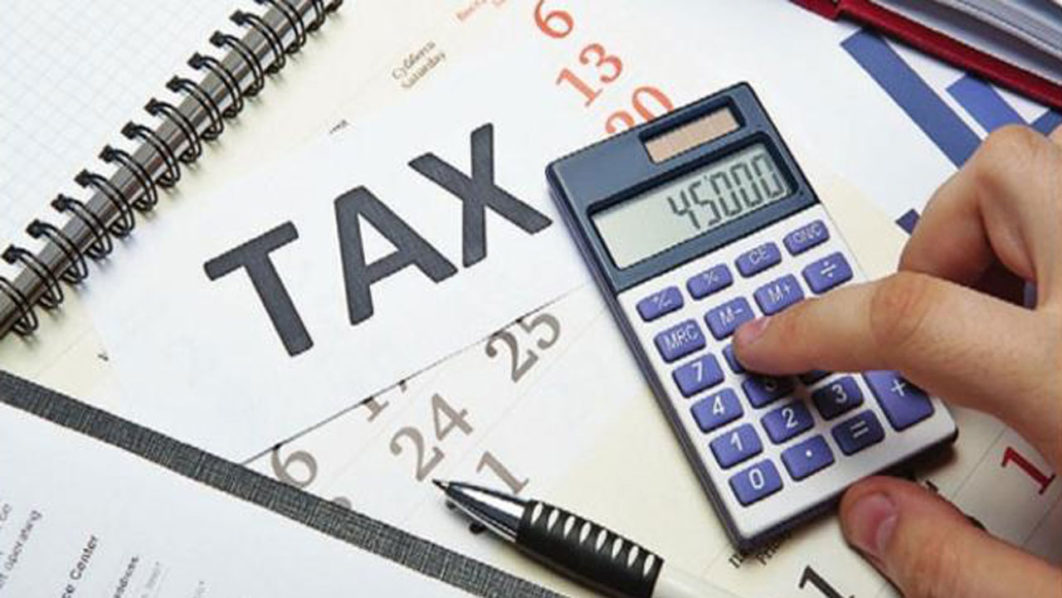Tax: Lagos, Rivers, others make N2.33tn from PAYE in three years
The 36 states in Nigeria and the Federal Capital Territory earned N2.33tn from Pay As You Earn in three years, according to data collated from the National Bureau of Statistics.
According to the NBS, PAYE is a form of personal income tax that refers to tax deducted directly from the wages and salaries of employees operating in the formal sector.
“All employers in Nigeria are responsible for deducting Pay As You Earn taxes from their employees’ earnings,” it said.
PAYE and self-assessment tax, another form of personal income tax, are collected by the state governments, according to the statistics office.
The highest PAYE collected in the years under review was N851.73bn in 2020, up from N809.32bn in 2019 and N669.22bn in 2018.
Lagos (N788.29bn) earned the highest from PAYE in the period under review, followed by Rivers (N255.34bn) and the Federal Capital Territory (N210.08bn).
Jigawa (N11.74bn), Taraba (N10.66bn), and Gombe (N9.23bn) made the least from PAYE in the period under review.
The South-West earned N1.0tn from PAYE in the three years under review, making it the region with the highest PAYE earnings.
The South-South is the region with the second highest PAYE earnings, as it got N555.14bn from 2018 to 2020.
The North-Central earned N366.71bn from PAYE, making it the region with the third highest PAYE earnings.
The North-West (N172.95bn), South East (N134.53bn) and North East (N96.54bn) earned the lowest from PAYE in the period under review.
According to the Federal Inland Revenue Service, PIT is guided by the amended Personal Income Tax Act Cap P8 LFN 2004, and it is imposed on income of individuals, corporate sole or body of individuals, communities, families and trustees or executors of any settlement.
It said the tax ranges from seven per cent to 24 per cent, dependent on the amount of chargeable income, adding that the due date for remittance of PAYE is the 10th day of every new month.
In the period under review, Lagos earned N788.29bn from PAYE; Rivers, N255.34bn; FCT, N210.08bn; and Delta, N136.12bn.
Ogun earned N87.61bn; Akwa Ibom, N65.64bn; Oyo, N50.89bn; Kano, N45.31bn; and Kaduna, N42.41bn, according to the NBS data.
From 2018 to 2020, Ondo generated N40.47bn from PAYE; Edo, N39.30bn; Enugu, N38.22bn; Bayelsa, N37.09bn; Imo, N32.08bn; Plateau, N31.55bn; Anambra, N30.68bn; Bauchi, N30.06bn; Kogi, N29.92bn; Benue, N28.77bn; Kwara, N25.03bn; and Osun, N24.32bn.
In the period under review, Nasarawa earned N23.23bn from PAYE; Katsina, N23.10bn; Cross River, N21.64bn; Sokoto, N20.85bn; Abia, N19.04bn; Niger, N18.13bn; Zamfara, N17.24bn; Borno, N16.90bn; and Adamawa, N15.29bn.
Ebonyi generated N14.51bn; Yobe, N14.39bn; Ekiti, N12.82bn; Kebbi, N12.29bn; Jigawa, N11.74bn; Taraba, N10.66bn, and Gombe, N9.23bn.
A professor of Economics and Public Policy at the University of Uyo, Akpan Ekpo, stressed the need for states to focus on investments in order to increase their PAYE earnings.
He said, “States need to attract investments; when people get jobs, they will pay tax. If an individual doesn’t have jobs, they cannot pay PAYE tax.
“There is high unemployment in every Nigerian state. If the states increase employment, bring in investors, start companies, foreign direct investment comes in, people will work, and they will pay tax.
“Lagos is the highest because there are a lot of businesses in Lagos. It is not like that in other states. But to increase investment, you have to solve the security problem because investors are wary of the security situation in the country. To increase PAYE, many people have to work. Presently, unemployment and underemployment is about 40 per cent, which is very high.” (Punch)


